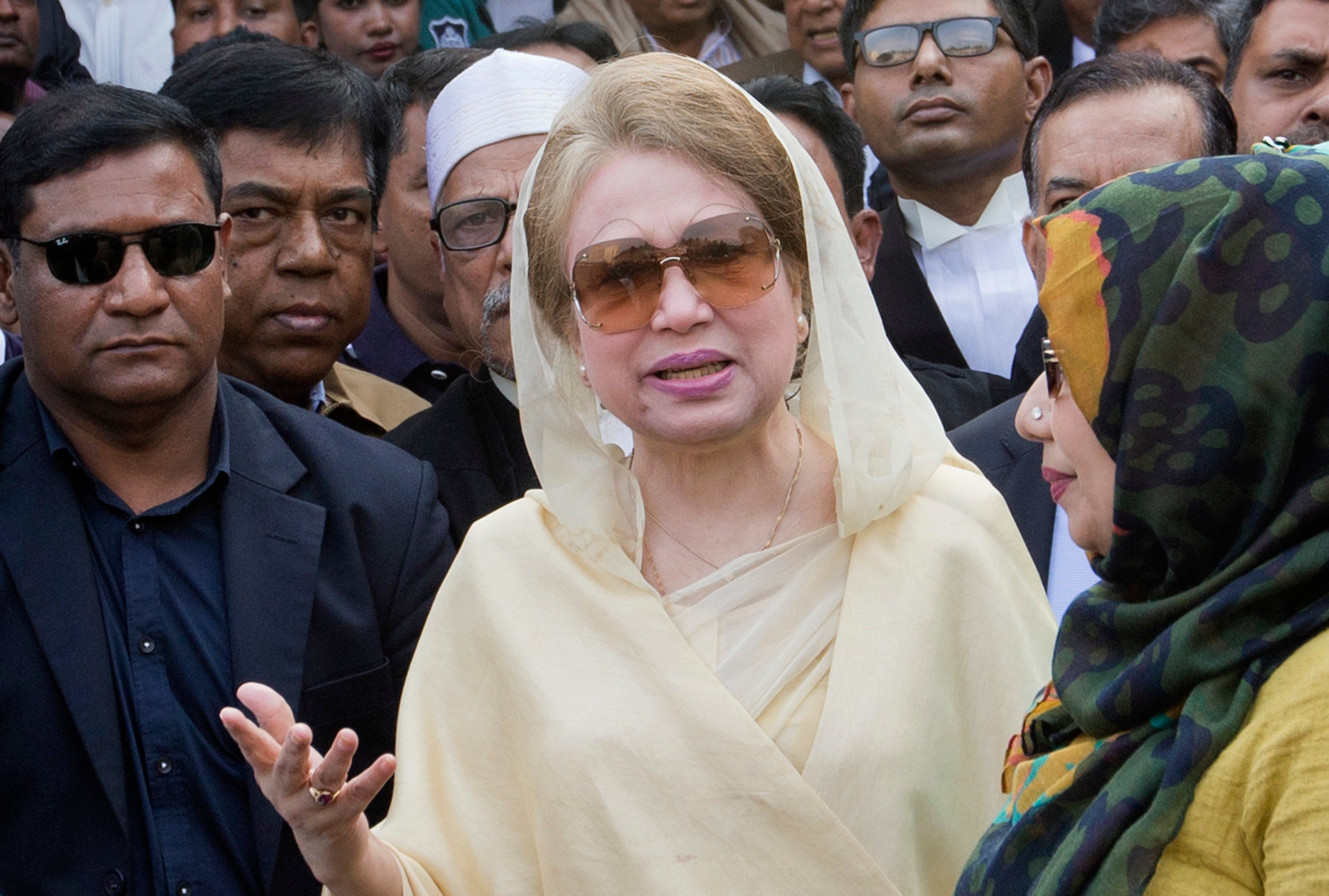Bangladesh's ailing former Prime Minister Khaleda Zia to undergo medical treatment in London
Bangladesh’s ailing former Prime Minister Khaleda Zia will travel to London for medical treatment, according to aides, leaving behind a nation grappling with uncertainty over its political future after her archrival, former Prime Minister Sheikh Hasina, was ousted in a student-led mass uprising in August

Your support helps us to tell the story
From reproductive rights to climate change to Big Tech, The Independent is on the ground when the story is developing. Whether it's investigating the financials of Elon Musk's pro-Trump PAC or producing our latest documentary, 'The A Word', which shines a light on the American women fighting for reproductive rights, we know how important it is to parse out the facts from the messaging.
At such a critical moment in US history, we need reporters on the ground. Your donation allows us to keep sending journalists to speak to both sides of the story.
The Independent is trusted by Americans across the entire political spectrum. And unlike many other quality news outlets, we choose not to lock Americans out of our reporting and analysis with paywalls. We believe quality journalism should be available to everyone, paid for by those who can afford it.
Your support makes all the difference.Bangladesh’s ailing former Prime Minister Khaleda Zia was traveling to London on Tuesday for medical treatment, her aides said, leaving behind a nation grappling with uncertainty over its political future after her archrival, former Prime Minister Sheikh Hasina, was ousted in a student-led mass uprising in August.
An interim government headed by Nobel Peace Prize laureate Muhammad Yunus is running the country and plans to hold elections in December this year or in the first half of 2026.
Zia was sentenced to 17 years in jail under Hasina’s rule following two corruption cases stemming from 2001-2006 when she was prime minister. Her supporters say the charges against her were politically motivated, an allegation Hasina’s administration denied. Under Yunus, Zia was acquitted in one of the cases in November and an appeal in the second case was being heard on Tuesday.
Zia, 79, was freed on bail from jail under Hasina through a government order and she has been having medical treatment in the country. But Hasina’s administration did not allow her to travel abroad for treatment despite requests seeking approval.
Zia's aides said she was due to leave the capital, Dhaka, aboard a special air ambulance sent by Qatar’s emir, Sheikh Tamim bin Hamad bin Khalifa Al Thani. Hundreds of her supporters gathered outside her residence in the city's upscale Gulshan area to see her off. Many other supporters waited for hours along the road leading toward Dhaka's international airport.
Enamul Haque Chowdhury, a close aide of Zia, told reporters that the air ambulance had arrived from Doha to take her to London, where her eldest son and heir apparent Tarique Rahman has been in exile since 2007. Rahman is the acting chairman of Zia’s Bangladesh Nationalist Party and is expected to lead the party toward the election. The country’s dynastic politics have long focused on the families of Hasina and Zia.
Zia’s personal physician, A.Z.M. Zahid Hossain, said Qatar’s emir arranged the special aircraft with medical facilities for the former prime minister, whose ailments include liver cirrhosis, cardiac disease and kidney problems.
Her departure follows dramatic political developments since last August, when Hasina’s 15-year rule ended. Hasina fled into exile in India as she and her close aides faced charges of killing hundreds of protesters during a mass protest movement that began in July.
Zia’s departure could create a symbolic vacuum in the country’s politics amid efforts by a student group that led the anti-Hasina protest to form a new political party. In the absence of Hasina and her secular Bangladesh Awami League party, the rise of Islamist political parties and other Islamist groups has been visible in the Muslim-majority country of 170 million people.
Zia's party has been bargaining with the Yunus-led government for an election sometime this year. Yunus said his government wants to make some major reforms before the election.